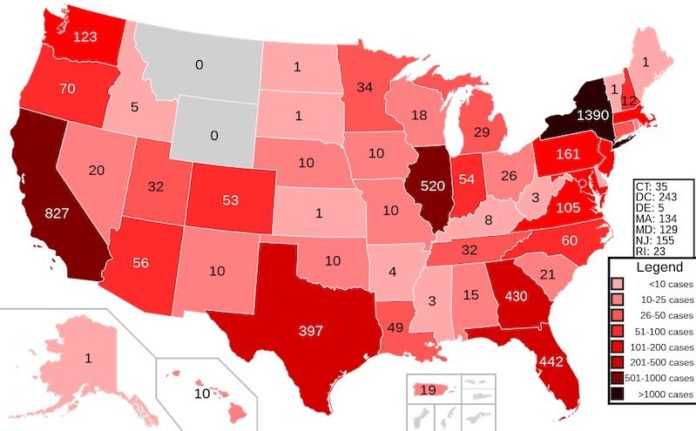In the midst of one pandemic, another one is now on the rise. As of August 2, 2022, the CDC has officially confirmed over 6,000 cases of Monkeypox in the US alone.
Monkeypox is a rare disease, similar to smallpox, but thankfully, much milder and less fatal. It was discovered in 1958, and for the most part, remained in West Africa. So, of course, the western world didn’t really care about it.
Over the past few months, however, monkeypox has been traveling to Western countries. This would normally cause the mass population to freak out and yet countries have largely ignored it. Why? Because people don’t think they can actually contract the disease.
Very reminiscent of the AIDS epidemic, the public is being told that monkeypox is mainly a disease for queer men. Even worse, the World Health Organization (WHO) initially only issued a statement aimed at “gay, bisexual, and other men who have sex with men” back in May 2022. The press release stated:
“Some cases have been identified through sexual health clinics in communities of gay, bisexual and other men who have sex with men… Thankfully, given that the virus is being identified in these communities, learning about monkeypox will help ensure that as few people as possible are affected and that the outbreak can be stopped.”
Though the statement does eventually say that anyone is at risk, the media of course took the first statement and went running with it, labeling Monkeypox as “a gay disease”. In doing so, doctors and other medical professionals are now dismissing people who are showing signs of monkeypox, just because they are in heterosexual relationships, furthering the spread.
 100vw, 800px” data-recalc-dims=”1″><figcaption id=) Monkeypox cases in the U.S. as of August 1, 2022/ credit: Carhles
Monkeypox cases in the U.S. as of August 1, 2022/ credit: CarhlesLet’s be clear: Monkeypox is not a sexually transmitted infection (STI). Anyone can catch monkeypox if they have been in physical contact with someone who has it. If you work in a place where you are in frequent contact with people, you are at risk. This is not a sex disease.
Thankfully, Monkeypox doesn’t seem to be airborne. Rather, this is a disease that happens through normal, everyday physical contact. It can also be transferred by wearing the clothes of those infected with the virus. (So please, wash that new outfit you just bought before wearing it!) Monkeypox typically takes 2-4 weeks to recover from. Let’s be honest, not a lot of Americans can afford to take a month off to recover from being sick. So, marketing this as a gay disease is not only harmful to the gay community, it is also harmful to the well-being of all Americans who live paycheck to paycheck.
With a medical bias toward gay men, the doctors are not doing their due diligence in testing people with the symptoms of monkeypox. This is a contact-heavy disease and with summer vacation almost over, who knows how many people will catch it? The symptoms of monkeypox are subtle, kind of like a small cold, but then the rashes and lesions come. But it can take time for the rashes to pop up. We know that parents can’t afford to take off work, so more often than not they send sick kids to school. This could lead to a breeding ground for monkeypox.
In demonizing this as a “queer-only” disease, it makes it so that more people will catch monkeypox. It can lead to another shutdown if we’re not careful. Monkeypox is a serious illness that anyone can catch. It is important to know that just because at this moment, a lot of queer people have the disease; anyone can still catch it. Believing in this medical homophobia will leave many untreated and spread the disease.
So far, the treatment for this disease is with a smallpox vaccine. However, since the disease was eradicated decades ago, Americans no longer receive the smallpox vaccine. So we need to be careful. Part of that is acknowledging that anyone can get Monkeypox and taking care of ourselves and our neighbors. But, if how the world reacted to COVID says anything, we may need to start hoarding toilet paper again.
Photo License:
Creative Commons Attribution-Share Alike 4.0 International license
READ THIS NEXT
‘Black People Often Learn That Doctors Don’t Really See Our Pain’








